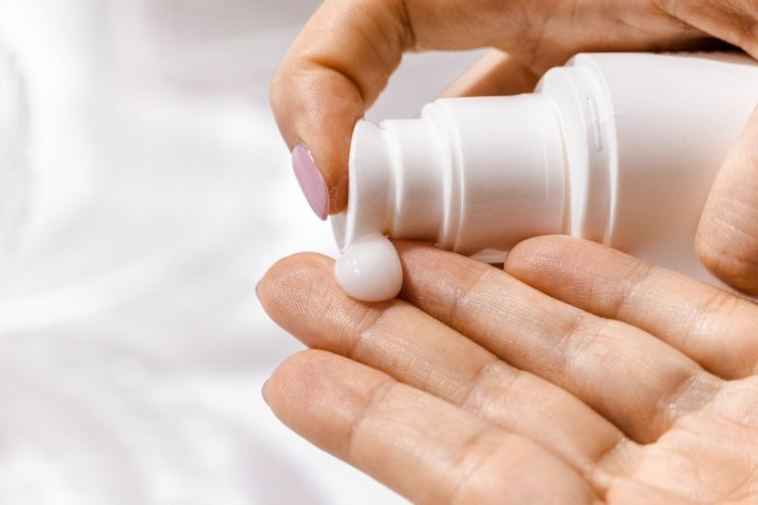- Like
- SHARE
- Digg
- Del
- Tumblr
- VKontakte
- Flattr
- Buffer
- Love This
- Save
- Odnoklassniki
- Meneame
- Blogger
- Amazon
- Yahoo Mail
- Gmail
- AOL
- Newsvine
- HackerNews
- Evernote
- MySpace
- Mail.ru
- Viadeo
- Line
- Comments
- Yummly
- SMS
- Viber
- Telegram
- JOIN
- Skype
- Facebook Messenger
- Kakao
- LiveJournal
- Yammer
- Edgar
- Fintel
- Mix
- Instapaper
- Copy Link
Introduction
Dry skin (or xerosis) is typically not a serious condition. It is a common, sometimes natural skin disorder among at least half of the population. Cracking, scaling, or itching are typical characteristics of dry skin. Though it can affect any part of the body, it commonly occurs on the arms, hands, and legs. In most cases, store-bought moisturizers and simple changes to the lifestyle may be sufficient to treat dry skin.
Signs and Symptoms of Dry Skin
Often, dry skin is temporary or seasonal — it can act up only during the cold months, for instance. For some, though, it is a life-long problem. If you have dry skin, you may typically observe the following:
- skin tightness, particularly after bathing or swimming
- rough-looking skin
- itching (or pruritus)
- mild to severe flaking or scaling
- cracks or fine lines
- lifeless, ashen skin
- redness and/or itching
Common Causes of Dry Skin
The kind of environment you’re in can be a factor in having dry skin (xerosis) as well as some medical conditions you might have. Possible causes of dry skin may include:
Heat. Home furnishing that generates heat such as space heaters, fireplaces, wood-burning ovens, or central heating. All these can reduce humidity in your surroundings and cause to dry your skin.
Weather. Skin is typically dry during cold seasons when humidity levels likewise plummet.
Baths and swimming. Taking long baths or showers with hot water can dry up your skin. Also, frequent swimming in heavily chlorinated pools can have the same effects on your skin.
Soaps and detergents. A number of soaps, shampoos, and detergents may contain harsh chemicals that strip your skin of moisture. A lot of these in the market are formulated to fight oil or grease.
Skin disorders. Eczema and psoriasis are some examples of pre-existing skin disorders that may leave you vulnerable to dry skin.
Another possible cause of dry skin is the kind of water you get in your area. Tap water typically contains calcium and magnesium. Having these minerals in high concentrations in your water makes it “hard”. Hard water contributes to dry skin, even hair.
Some people are born with dry skin. Otherwise, the likelihood of developing dry skin increases for you if you:
- are in your 40s or higher. The risk of dry skin increases with age.
- live in cold, dry, or low-humidity conditions.
- work a lot with water, such as hairstyling or dishwashing.
- frequently swim in pools with high chlorine concentrations
How to Avoid and Cure Dry Skin
A few simple changes to your lifestyle may help prevent and ease dry skin. To keep your skin from getting excessively dry, do:
- Use moisturizers. They work to seal skin to keep much-needed water from leaving your skin. Apply before bedtime and right after taking a shower.
- Avoid excessive exposure to water. Limit bath time to under 10 minutes. Use warm water, not hot.
- Pat dry your skin using a soft towel. Avoid rubbing when drying after baths.
- Not use harsh soaps. Instead, try gentle foam cleansers or shower gels with added moisturizers. Soap products with strong scents will tend to contain harsh chemicals.
- Protect your skin from cold weather and strong winds. Winter can be particularly harsh on the skin, so cover up as much skin as you can when going out. Pile on the hat, scarf, sweater, and gloves.
- Wear rubber gloves. Whenever you wash dishes, clothes, or anything that involves immersing your hands in water for long and the use of potent soap or detergent, do wear rubber gloves to protect the skin of your hands.
- Run a humidifier in the home.
- Hydrate. Drink 8 glasses of water a day, minimum.
- If you notice problems with dry skin and hair and find that you get hard water in your tap, you can reverse this by installing a high-quality water softener for your home. These systems work to reduce the mineral concentrations found in the water.
However, if your skin remains markedly dry even after your best efforts at the above home remedies, do consult your doctor immediately. Schedule a consultation with your dermatologist if you observe:
- No improvement, even with careful skincare.
- There is abnormal redness and itching.
- The itchiness disrupts your sleep.
- Open sores or infections that developed due to scratching.
- Unusually large areas of peeling or scaly skin.
Usually, dry skin is not a cause for serious concern. In most cases, dry skin is caused by environmental factors like weather, low humidity, harsh soaps, etc., and simple home remedies and lifestyle changes can address it. But when the condition persists or progresses in severity, do consult with your trusted dermatologist.


